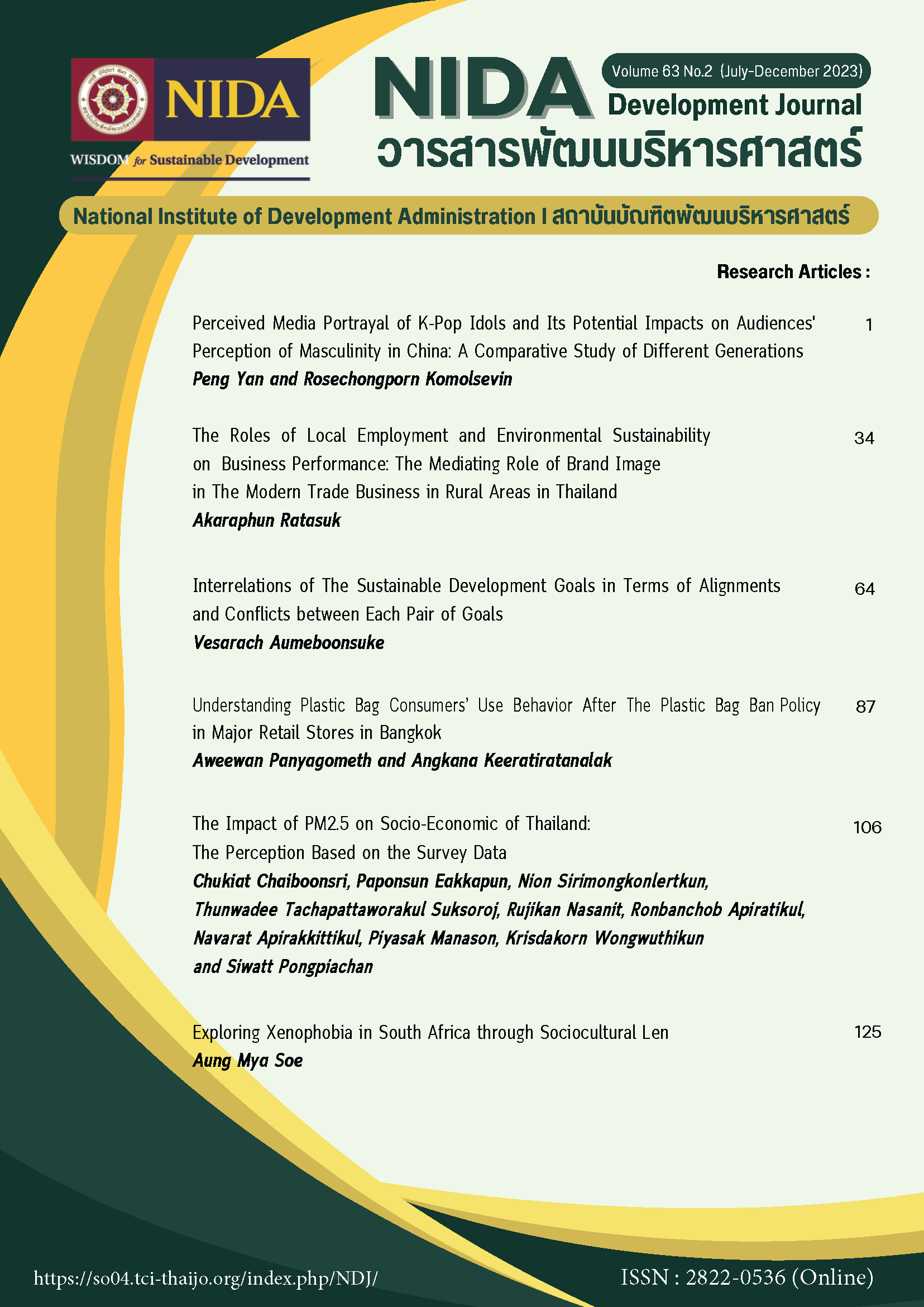Exploring Xenophobia in South Africa through Sociocultural Len
DOI:
https://doi.org/10.14456/ndj.2023.6Keywords:
Social Identity , Makwerekwere , Xenophobia , Scapegoating Hypothesis , Structural TransformationAbstract
This paper addresses the problem of Xenophobia in South Africa. The purpose of this paper is to find out the factors that caused Xenophobia, the challenges and solutions for rebuilding social cohesion and reducing inequality in South Africa. The research is based upon theoretical concept of Galtung’s violence and conflict triangle, and the scapegoating hypothesis of Duncan. Library research method was used and literature, reports and documents were analyzed. The preliminary findings are the social problems such as unemployment, lack of housing and prejudice over business rival immigrants, and the cultural factors comprising language, clothing, music and traditions of black immigrants; the driving factors causing Xenophobia. This paper concludes that public sector commitment to engage in skill development for employment, administering provision of affordable housing and promoting cultural diversity with structural transformation, can help heal the Xenophobia, alleviate discrimination and promote equality in the divided South Africa.
References
Bakken, I.V & Rustad, S.A, (2018). Conflict Trends in Africa. Peace Research Institute, Oslo
Belvedere, F., et al. 2003. National Refugee Baseline Survey: Final Report. Johannesburg: Community Agency for Social Enquiry (CASE), Japan International Cooperation, and United Nations High Commissioner for Refugees.
Bond, P. et al., (2009) Xenophobia and Civil Society: Why did it happen? The Atlantic Philanthropies.
Duncan, N. (2012). Reaping the whirlwind: Xenophobic violence in South Africa. Global Journal of Community Psychology Practice.
Galtung, J. (1996). Peace by Peaceful Means (1st ed.). SAGE Publications.
Isike, C & Isike, F, (2013). A Socio-cultural Analysis of African Immigration to South Africa. University of Pretoria.
Matsinhe, D. M. (2011). Africa’s Fear of Itself: the ideology of “Makwerekwere” in South Africa. Third World Quarterly,
Misago, J.P. et al., (2015) Protection from Xenophobia: An Evaluation of UNHCR’s Regional Office for Southern Africa’s Xenophobia Related Programmes. The African Centre for Migration and Society, University of Witwatersrand.
Masikane, C.M.et al. (2020) Dynamics informing xenophobia and leadership response in South Africa. Acta Commercii
Sadie, W. and Borger, S. (2004) . “Accessing Accommodation in Inner-City Johannesburg” in L. B. Landau (ed.) Forced Migrants in the New Johannesburg: Towards a Local Government Response. Johannesburg: University of the Witwatersrand.
Sindane, A.P. (2019) Perceptions of intercultural marriage: the lived experiences of South Africans and African foreigners in intercultural marriage. University of Kwazulu-Natal
Tafira, C. K. (2014). The South African Woman and the Immigrant Lover: Myths and Dynamics of Cross-Border Love Relationships in a Post-Apartheid South African Community. Ufahamu: A Journal of African Studies, 38(1)
Downloads
Published
How to Cite
Issue
Section
License
Copyright (c) 2023 NIDA Development Journal

This work is licensed under a Creative Commons Attribution-NonCommercial-NoDerivatives 4.0 International License.





